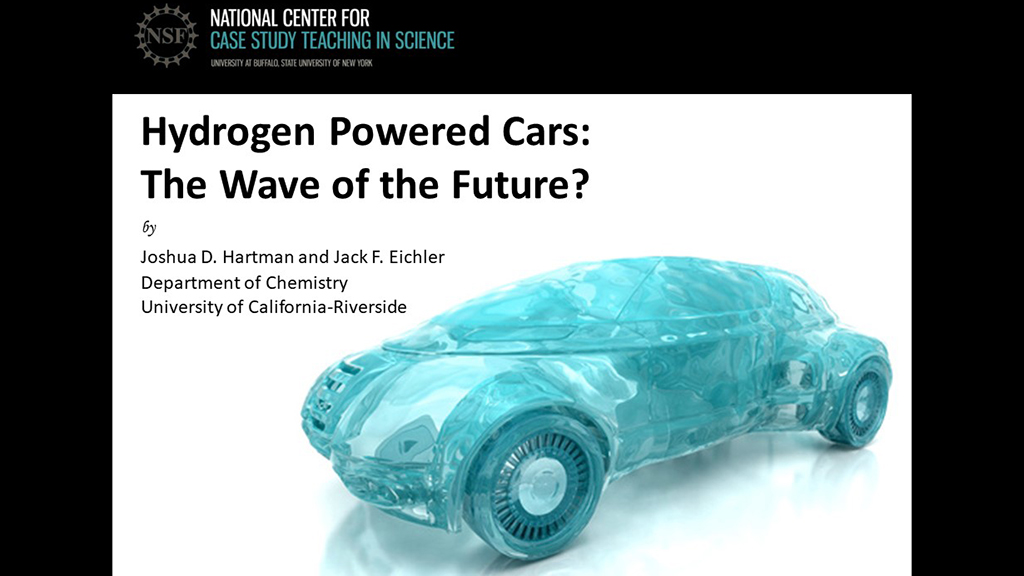Abstract
This problem-based case study guides students through a systematic exploration of the scientific issues surrounding the application and development of hydrogen fuel technology. A PowerPoint presentation introduces a New York Times article about the impact of our abundant natural gas resources on the cost of hydrogen fuel production. The article includes an Energy Department estimate that places the gasoline-cost equivalent of hydrogen fuel production, compression, and distribution at less than $4 per gallon, making it a viable option for the transportation sector. Students are then given primary literature articles and a worksheet to help them examine (1) the benefits and drawbacks of using hydrogen as a fuel in automobiles and trucks, (2) the current technological/engineering limitations of using hydrogen fuel, and (3) whether the pursuit of developing large-scale use of hydrogen-powered cars is the right direction for the country. Originally written for a second semester/second quarter general chemistry course, the case study is designed to illustrate the direct application of chemical thermodynamics and gas laws to the production and distribution of renewable fuels.



